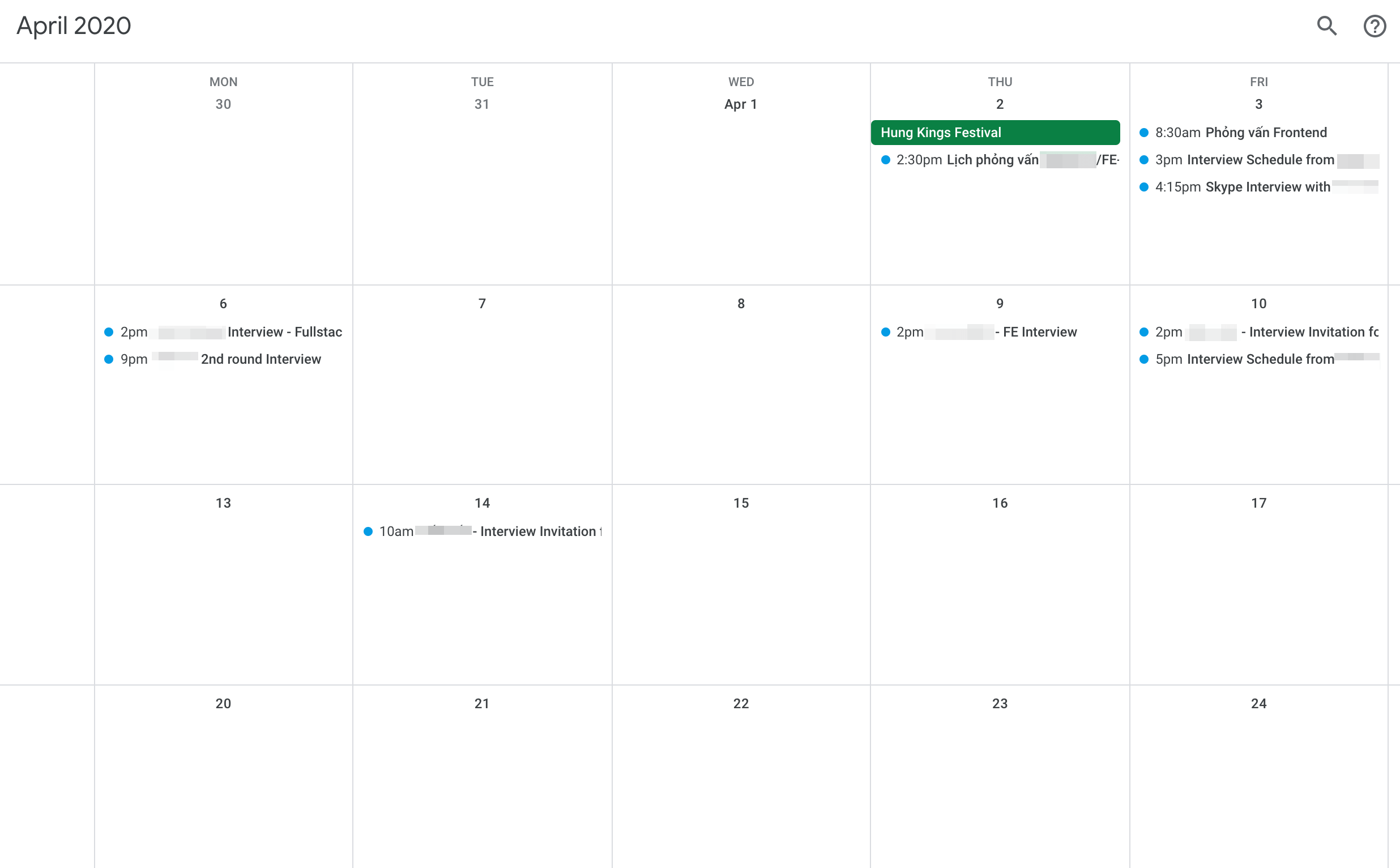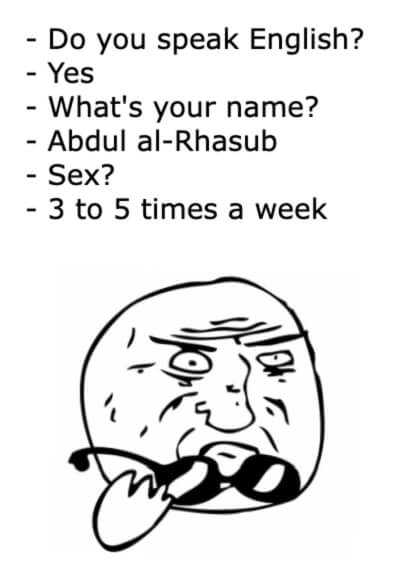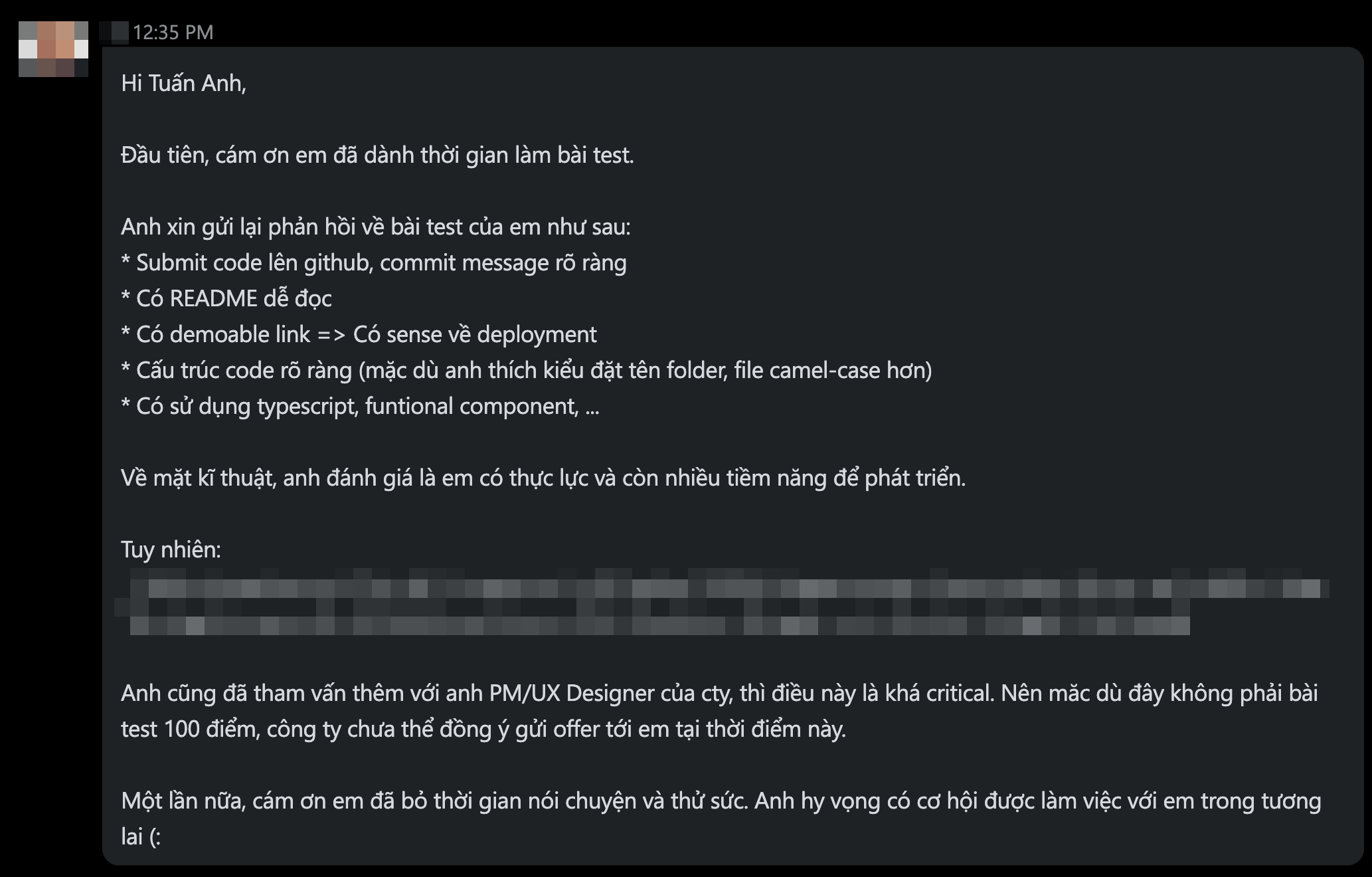[Part 2] How should developers look for a new job - Interview, negotiate, and find a good company

- Published on
- /7 mins read/---
In the previous part, I shared how to prepare your profile, write a CV, receive a job description, and apply for the desired position. If you’ve been invited for an interview, you can refer to my interview and salary negotiation experiences to get a good offer.
I applied for several suitable positions and received interview invitations right away.

Preparing and Scheduling
If you have offline interviews, only schedule one interview per session. The time spent getting acquainted, testing, and interviewing is quite consuming. You can't guarantee how long it will take (1 or 2 hours), so if it takes too long and you’re late for the next one, it’ll be a bad impression
Since I interviewed during the quarantine period and most companies were working from home, all my interviews were online. If you’re also having online interviews, you can schedule 2 interviews in one session since you don’t need to spend time commuting and preparing. Just be sure to space them out to have enough time in between.
If you have multiple interviews, it’s best to proactively note them down in a calendar and download an app to remind yourself, so you don’t forget.
Ideally, you should schedule interviews within 1-2 weeks if you’ve already quit your job—because the longer you’re unemployed, the less money you have to spend :)). If you’re interviewing while still employed, spread them out so your current boss doesn’t get too upset
Research the company beforehand to see what products they’re working on and what technologies they’re using. Some companies might ask if you know what product you’ll be working on, so preparing will help you score points in these situations.
The Screening Round
Some companies will send you a test to complete within a few days or ask you to take a test during the interview. My experience with this is to treat it like a regular task at work and ask the interviewer thoroughly to understand the requirements.
Treat the interviewer like a colleague, and ask questions if you need any help. You’ll definitely be rated higher if you engage in discussion rather than just coding silently from start to finish.
Round

After passing the test, you’ll have a technical interview with a Senior/Team Leader/Tech Lead/CTO.
Some companies will interview in Vietnamese, while others will conduct it in both Vietnamese and English. Typically, they’ll ask if you can do the interview in English or have you take an English test first. If possible, I recommend interviewing in English.
I had 2 full English interviews; the rest were technical interviews in Vietnamese followed by an English HR interview (open-topic). Working in an English-speaking environment will be very beneficial for your career later on (I know this well because my current boss is Russian, and every day I have to communicate using broken English with him).

During the interview, just answer openly. Say everything you understand about the topic when asked, don’t bluff or waste time with "uhm" and "ah". If you don’t know the answer, just honestly say you don’t know.
There’s usually only one technical interview round, so this is your only chance for the interviewer to assess your skill level. For topics you’re confident in, present your knowledge confidently, thoroughly, and in detail!
As you see, the technical interview isn’t complicated. Just relax, and you’ll nail the interview
CAUTION
I’m just kidding; it’s nerve-wracking => The more interviews you do, the more confident you’ll get
After this round, companies will usually let you know if you passed. If you find yourself waiting forever with no response, it’s likely a no-go.

Round
If HR contacts you for a second interview, congratulations! By this point, you’re 96.69% of the way to getting the job.
This round usually involves HR, PM, CEO, CTO, etc. (depending on the company), who will ask questions (not technical ones) to learn more about you, your communication skills, personality, and work attitude to see if you’re a good cultural fit.
In this round, just respond politely, and you’ll do fine (every boss wants good employees ).
Pro tip: During this round, you’ll often be asked about your expected salary. From my experience, don’t give a specific number! Instead, provide a range. For example, if you want $1k, say “My expected salary is between 1k - 1k3”. Usually, companies will offer you the minimum of your range, so be strategic!
Next, they’ll ask when you can start working. For me, I wouldn’t start right away but would take 1-2 weeks off to relax, spend time with loved ones , and prepare before starting work. You should also take a break and mentally prepare before starting the new job!
NOTE
Every company’s interview process is different, but it’s generally like what I’ve described above. The most important thing is to prepare your knowledge thoroughly for the job. Everything else is secondary but can help you stand out because engineers are more than just coders, right?
How to negotiate a good salary?
As I mentioned before, always provide a salary range instead of a specific number. Companies rarely offer what you want unless you ask for too little (then they’ll agree immediately ).
Be ready to negotiate if the company offers less than your value. Don’t be afraid to say you want a higher amount, but your reason must be reasonable, like comparing with your previous salary or mentioning another company with a higher offer but expressing that you prefer to work here! You’ll likely get a better offer if you’re willing to negotiate!
How to find a good company?
Your career greatly depends on where you work. So, how do you find a good company?
Read reviews: Check out company reviews on sites like reviewcongty, itviec. Don’t trust them completely since some companies have a lot of drama, but if a place is constantly criticized, then it’s best to avoid it. You can also ask acquaintances working there for a more reliable opinion.
Ask the interviewer: Usually, after the interview, you’ll be asked if you have any questions. Take this chance to ask the following:
Ask for feedback from the interviewer about your performance after the interview. This person will likely be your boss, someone you’ll interact with daily, so you should observe their attitude to see if they’re a good match for you. Are they friendly, easy-going, and willing to help when you’re stuck? Or are they condescending and critical?
The right boss is key to staying long-term in a job. If you have a boss who constantly nitpicks, asks you to stay late, or calls for meetings right when it’s time to leave, it’ll be tough to work with them.
Ask about the company’s salary and bonus policies. Is there a 13th-month salary? What’s the benefit package? How many days off are there annually? Is remote working an option? Does the company fully pay for insurance and personal income tax?
Ask about the team’s working hours. Do they work on Saturday mornings? Is overtime common? If there’s OT, how is it compensated?
TIP
Recruiters will appreciate when you ask these questions because it shows your seriousness about the job. Make sure to understand everything clearly before accepting an offer!
Evaluate based on HR: Observe how the HR team approaches you, whether they care about your situation, whether the JD is professional, whether they’re punctual, and whether they follow up after the interview. If they’ve been trained
